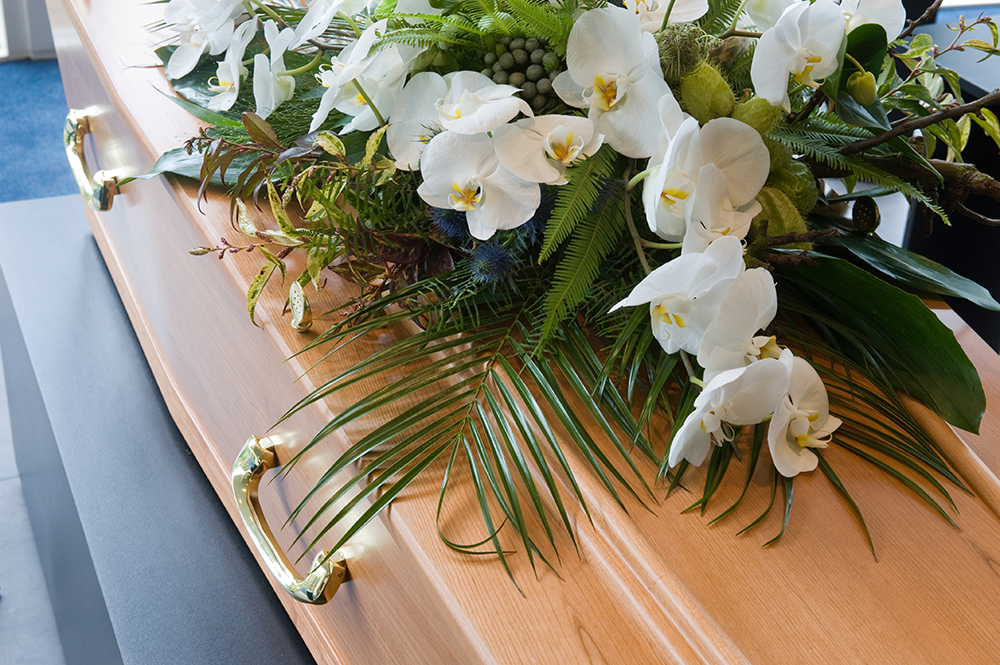
Planning your funeral arrangements in advance carries several helpful benefits, starting with stress relief for both you and your family. With all the logistical and financial decisions that have to be made when planning a funeral, each part of the plan that can be settled beforehand helps the entire process go more smoothly later on, when emotions like grief and sadness can cause more complications, more stress, and higher costs.
At the same time, everyone is different and the level of pre-planning you feel comfortable with might be distinct from what others are able to handle. That’s okay. This is a personal process and should always be conducted at your pace and comfort level. Let’s get into some tips and advice for planning a funeral and burial.
Tip #1: Plan at your own pace.
The first piece of funeral planning advice is to take things one step at a time. Do what you feel comfortable doing and make your plans the way you want to make them. There is certainly no requirement to plan everything at once. You don’t even need to plan everything down to the last detail, either. For some people, it is a relief to know they’ve organized a blueprint for their loved ones on how to conduct a funeral service or what type of burial they want (and paid for most of, if not all of it, in advance). For others, simply stating what type of burial they want and where they want it may be enough. You have the full spectrum of options available to you, so start with the basics and make more plans as it feels right.
Tip #2: If you make only one decision, let it be about the type of burial you want.

For families who have just lost a loved one, having to decide how to bury someone can be an agonizing decision to make during a time of incredible grief. That can create a stressful environment when your family is already at their breaking point. If you take only one of these funeral planning tips to heart, please let it be this one: choose the type of burial you want to have. It is the biggest decision you will make during the funeral planning process, so give it some time for thought. These are the most common options:
- Traditional in-ground burial, meaning in a casket with either a headstone or flat marker
- Above-ground burial, either in a public or private mausoleum or a lawn crypt
- Cremation, to be placed in an urn or scattered (urns can also be kept in a cremation niche in a cemetery, or scattered in the scattering garden of a cemetery)
- Natural burial, which is only available at some cemeteries in some states and involves being buried without a casket or burial vault, in order to return to nature
Tip #3: Choose a cemetery.

Whether you choose in-ground burial, entombment in a mausoleum, a form of cremation, or something else, you can choose the actual cemetery in advance. This is a major component of funeral planning – and an important one, too, since it’s common that advance selection can save you some money by locking in certain costs at the cemetery now before years or even decades, of inflation. When choosing a location, consider details such as:
- Proximity to loved ones
- Appearance in relation to your preferences — do you like lush green, large trees, views of mountains, etc.
- Religious affiliation
- Special features such as a pond or a large cross
- Special circumstances such as a veteran’s section
Tip #4: Understand all available options.

Planning a funeral is a detailed process. The remainder of this article will outline the various types of funeral services and burial products, as well as our funeral planning tips for personalizing your burial to reflect your life and legacy.
Learn about the different types of funeral services.
There is typically a ceremony that takes place before burial or cremation. This can be a traditional service in a funeral home, a religious funeral in a house of worship, a memorial service followed by a graveside service, or a funeral at home. These are only the most common options. There are many other ways to plan a funeral service. Sometimes there is a wake before the funeral (a wake is a mourning event that’s associated with Catholicism but can also be observed by other religions in different forms). You can download a free burial plan kit now to learn more.
Learn about the different types of burial products there are to choose from.
The type of burial you select will impact the types of burial products needed. For example, if you are planning a traditional, in-ground burial, you can select from many different materials and finishes for caskets, as well as various types of memorials, from large headstones to flat grave markers (as well as the inscription upon them). If you are planning a cremation, you may want to select the urn material, color, engraving, etc. For some people, choosing flowers is an important part of their funeral planning process.
There is also the funeral service to consider. The type of music played may be dictated by the type of service chosen (do you want something religious; do you want it to feel like a celebration of life?). This goes for readings, speakers, and other similar details. You may relish this opportunity to plan as a way to define your legacy and how your story gets told, or you may not want to deal with any of this. Remember: take everything at your own pace and do what feels comfortable for you in the moment.
Think about personalizing your memorial service or funeral.
These days, people are choosing from a wider selection of options when it comes to the type of funeral or memorial service they plan. Funerals can range from the traditional and formal to the unexpected. The location, the officiant, the visitors/guests and the attire they wear can all be set in advance according to your personal wishes.
Tip #5: Consider talking to your loved ones about your plans.

Funeral planning is a highly personal matter, but sometimes it helps to talk things over with your family or close friends. They may have some good thoughts as well as their own helpful funeral planning advice. They may also think that, for example, even if you live in Florida, your family may reside somewhere else in the country, and you may therefore want to be interned closer to them.
Also talk to your loved ones about cost. One of the greatest gifts you can give is to handle everything ahead of time, so they don’t need to worry about added stress at their time of grief. But let them know ahead of time that you’ve done this. If you don’t purchase everything in advance, at least let them know your preferences, so they can make the right decisions when the time arises. Above all, make this experience about how you want to be remembered, how you want your lasting story to be told.


